Watch and listen to GPP events
Collected here are the publicly available recordings of past events of the Georgian Papers Programme and other GPP AV content.
An interview with Jeremy Black, author of George III: Majesty and Madness (Allen Lane, 2020)
January 27, 2021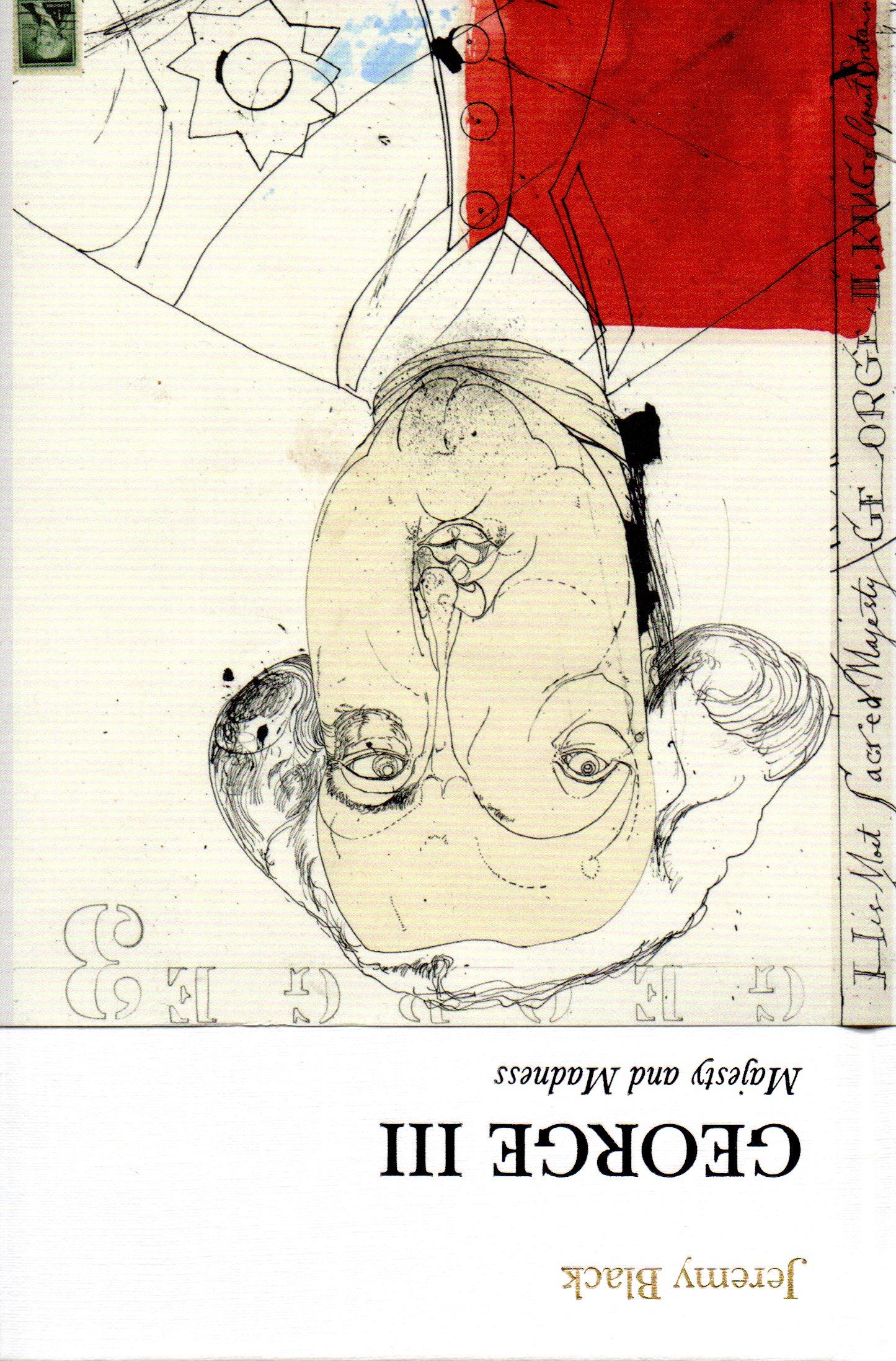
This is the first of what we hope will be a series of online conversations in which scholars who have made use of the Georgian Papers in their publications talk about these works with members of the GPP team. We begin with Jeremy Black, formerly professor of history at the University of Exeter, who has just completed a short biography of George III for the Penguin Monarchs series, in which he draws extensively on materials in the Georgian Papers. This is the first scholarly biography of the monarch to have been published for more than a decade: in fact the last such volume was also written by Jeremy Black: George III: America’s Last King (Yale UP, 2008). In the conversation Black discusses the relationship between the two books and how his approach to the monarch has evolved in the interval between them, as well as the challenges that George III presents to any biographer. Jeremy Black is a prominent and prolific historian of eighteenth-century Britain and Europe. He also writes extensively on the history of warfare, the history of the press, diplomacy and international relations. He is joined for this conversation by Professor Arthur Burns, academic director of the Georgian Papers Programme at King’s College London. To watch the interview, please visit the Georgian Papers You Tube channel here: https://youtu.be/iVtyupjwmPY
Hanoverian Flavours on the King’s Table in the Long Eighteenth Century – Adam Crymble and Sarah Fox
January 19, 2021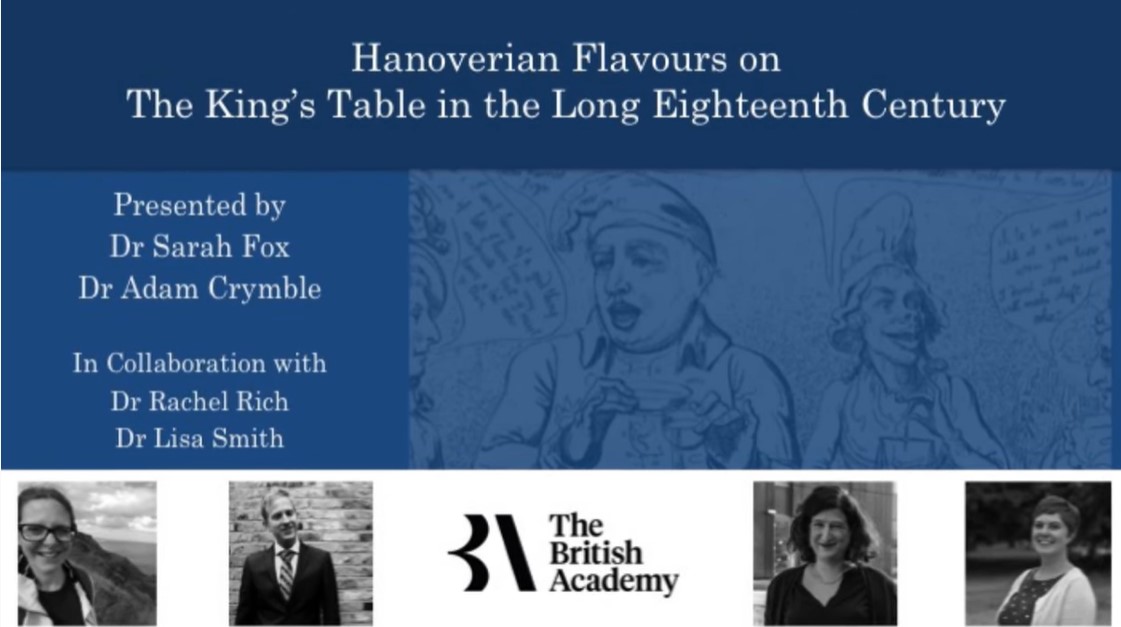
On 13 January 2021, Dr Adam Crymble (UCL) and Dr Sarah Fox (Leeds Beckett University), in collaboration with Dr Rachel Rich and Dr Lisa Smith, gave the paper ‘Hanoverian Flavours on the King’s Table in the Long Eighteenth Century’ as part of the Institute of Historical Research British History in the Long 18th Century Seminar Series at the School of Advanced Studies at the University of London. The paper presents their research into the evidence for food consumption contained within the Georgian papers. The team kindly agreed to share their paper with visitors to the GPP site. For more information, please have a look at the project site: https://dinners.hypotheses.org/about
2020 – David Armitage, Sons of the American Revolution GPP Lecture
January 19, 2021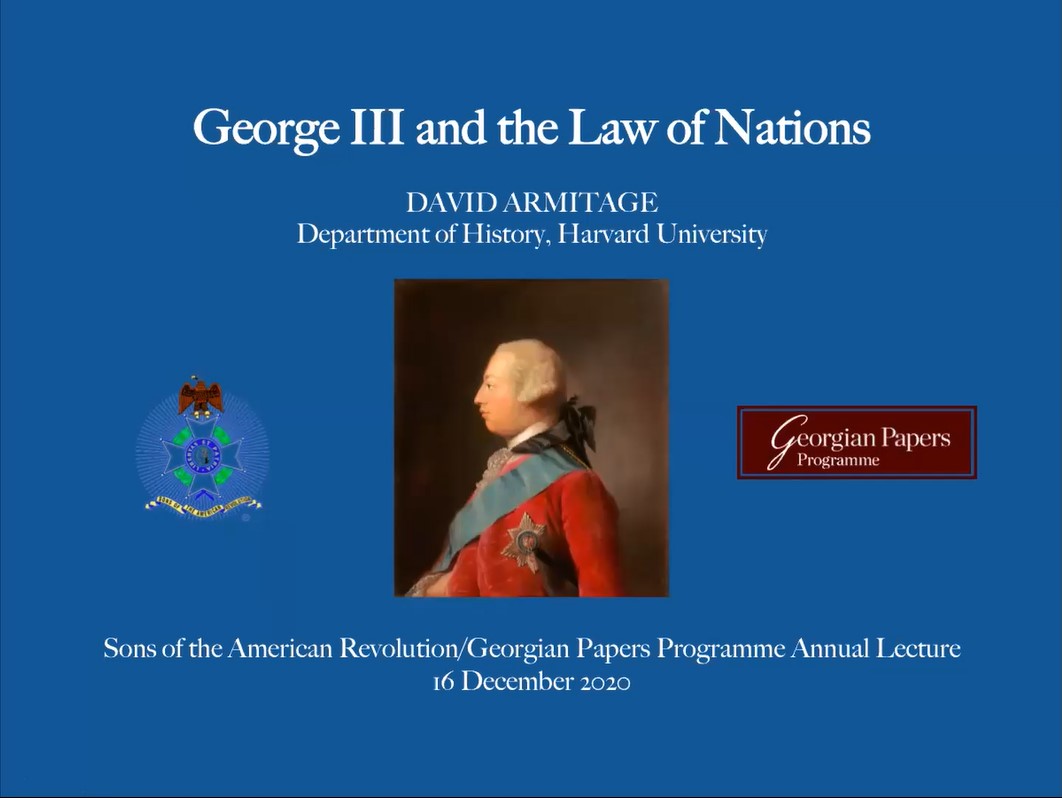
On 16 December 2020, GPP hosted the annual Sons of the American Revolution GPP Lecture. Our speaker was Professor David Armitage (Harvard), who spoke on the topic ‘George III and the Law of Nations’. The session was introduced and chaired by Professor Karin Wulf, academic co-director for GPP. David Armitage is the Lloyd C. Blankfein Professor of History at Harvard University and an Affiliated Faculty Member at Harvard Law School. He is also an Honorary Professor of History at both the University of Sydney and Queen’s University Belfast and an Honorary Fellow of St Catharine’s College, Cambridge. He is the author or editor of eighteen books, among them The Ideological Origins of the British Empire (2000), The Declaration of Independence: A Global History (2007), Foundations of Modern International Thought (2013), The History Manifesto (2014, co-auth.), and Civil Wars: A History in Ideas (2017). He has held fellowships and visiting positions in Australia, Britain, China, France, Germany, South Korea, and the United States, and this academic year he is the Sons of the American Revolution Visiting Professor at King’s College London in association with the Georgian Papers Programme and the Royal Archives. The Sons of the American Revolution The Sons of the American Revolution is an historical, educational and patriotic non-profit corporation whose members are direct descendants of the men and women who supported the cause of American Independence during the years 1774-1783. The National Society of the Sons of the Revolution is collaborating with King’s College London to sponsor visiting professorships at the College and hosted by various departments. The visiting professors work on their own research and disseminate their findings relevant to the GPP to academics, archivists and the wider public. The Georgian Papers Programme is very grateful to the Sons of the American Revolution for sponsoring this research opportunity and its ongoing support of the Programme more generally.
Zara Anishanslin & Arthur Burns discuss the Georgian Papers for the Washington Library
July 16, 2020
On 14 July 2020 the Washington Library Digital Book Talk involved Arthur Burns, academic director of the Georgian Papers Programme at King’s College London and Zara Anishanslin, 2019 Mount Vernon GPP fellow, in conversation with Jim Ambuske, Digital Historian at the Washington Library and himself one of the first Omohundro Institute GPP fellows. The conversation ranged widely across the Programme and Professor Anishanslin’s fascinating research project on the American Revolution in London. You can watch the conversation here.
NTLive at Home streaming The Madness of George III from Nottingham Playhouse for free on YouTube
June 4, 2020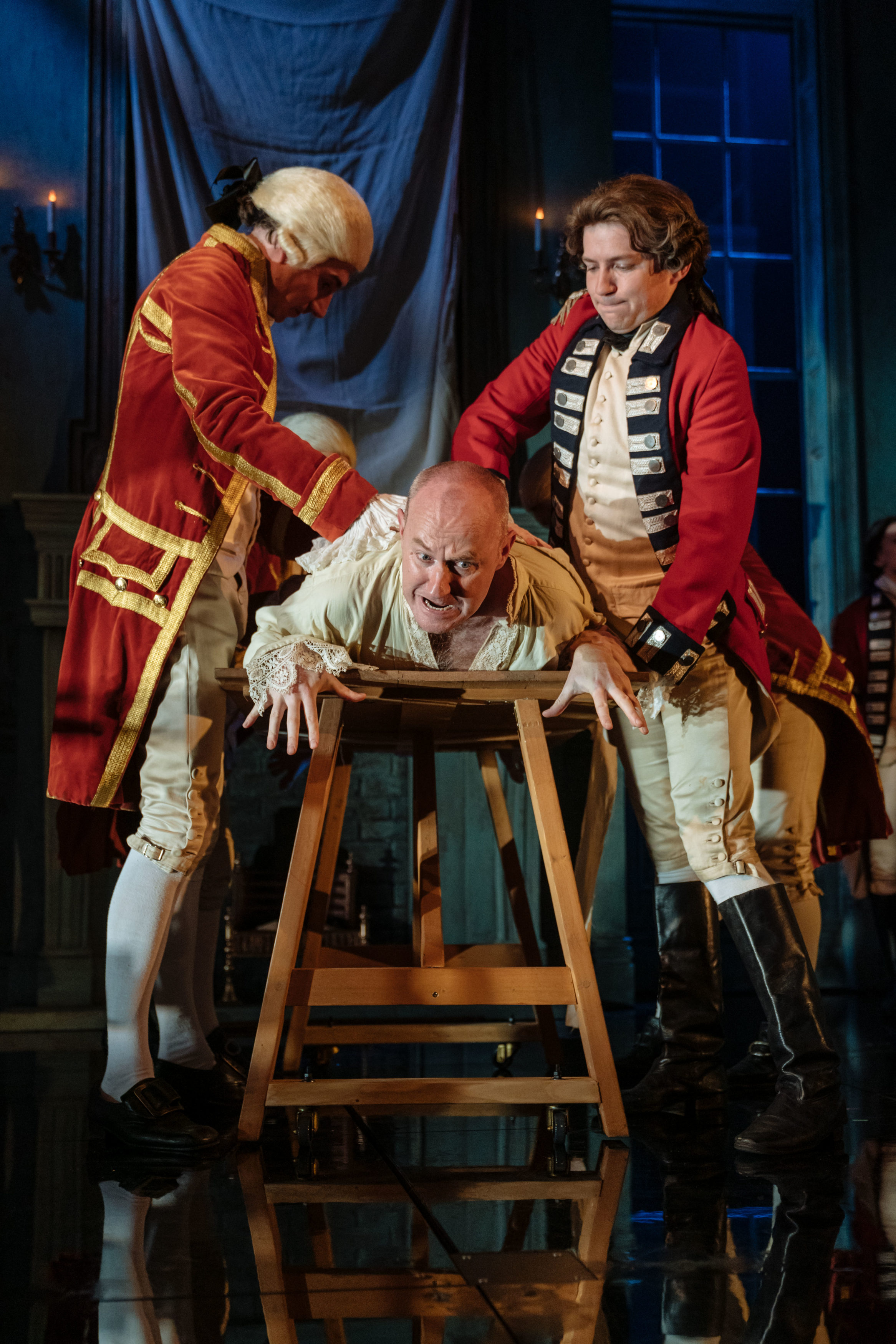
We were delighted that in June 2020 NTLive streamed a free recording of the 2018 Nottingham Playhouse production of the Madness of George III which could be be viewed across the world. The Georgian Papers Programme worked very closely with both the Playhouse and NTLive to support the original production, briefing the cast, supplying material for props, staging an exhibition at Windsor for the actor portraying George, the wonderful Mark Gatiss, and then mounting it online, and providing programme notes and a pre-performance talk. You can see a record of Mark’s visit to Windsor in the introduction to the play produced by NTLive: We also staged two events linked to the play – a discussion with the playwright and first director of the play back in the 1990s, Alan Bennett and Nicholas Hytner, and then a reflection on the Nottingham production with Mark Gatiss, director Adam Penford, historians Barbara Taylor and Mike Brown, and Sir Simon Wessely from a clinical perspective (for which we staged another exhibition). We can’t recommend the performance highly enough for anyone interested in the eighteenth-century or the issues it raises about mental illness more generally – we ourselves now have three interrelated research projects which arise directly from our engagement with the creative artists involved and the reflection it provoked on the historical treatment of the King’s illness, so well documented in the Georgian Papers. It was broadcast on the NTLive channel on You Tube. If you ever get the chance to see it in future, do! Arthur Burns, academic director of GPP, joined the director and members of the cast to look back on the production to celebrate the screening on NTLive. You can view the conversation below, including Adrian Scarborough’s memorable rendition of Hamlet’s soliloquy in the voice of Alan Bennett! You can find our materials relating to the play and production in the following places: Mental Health in the Georgian World: The ‘Madness’ of George III: recording of symposium with Mark Gatiss, Adam Penford, Mike Brown, Barbara Taylor, Karin Wulf and Arthur Burns, 5 Nov. 2019. An associated blog post by Arthur Burns and Karin Wulf at The Madness of George III revisited: reflections on Mental Health in the Georgian World. Just write it, I’ll make it work’ – King George III through the eyes of Alan Bennett & Nicholas Hytner: recording of interview between Alan Read and Alan Bennett and Nicholas Hytner, 5 Oct. 2016 The Madness of George III explored: an exhibition for Mark Gatiss: an exhibition staged at Windsor for Mark Gatiss when preparing for his role, and then reproduced online: also seen in the pre-show film when the NTLive production was shown in cinemas. George III: the Eighteenth Century’s Most Prominent Mental Health Patient: a Virtual Exhibition by Arthur Burns and Karin Wulf: an exhibition staged in association with the Nov. 5 symposium. The 18th Century Materializes on Stage: a blog reflecting on how the 18th century was realised in the Nottingham production. The Madness of George III revisited – Sir Simon Wessely on George’s illness: A link to an article by Simon Wessely offering his perspective as a practising clinician. And if all this inspires more interest in the remarkable medical papers associated with George III, why not come and join us in transcribing them? Learn more here.
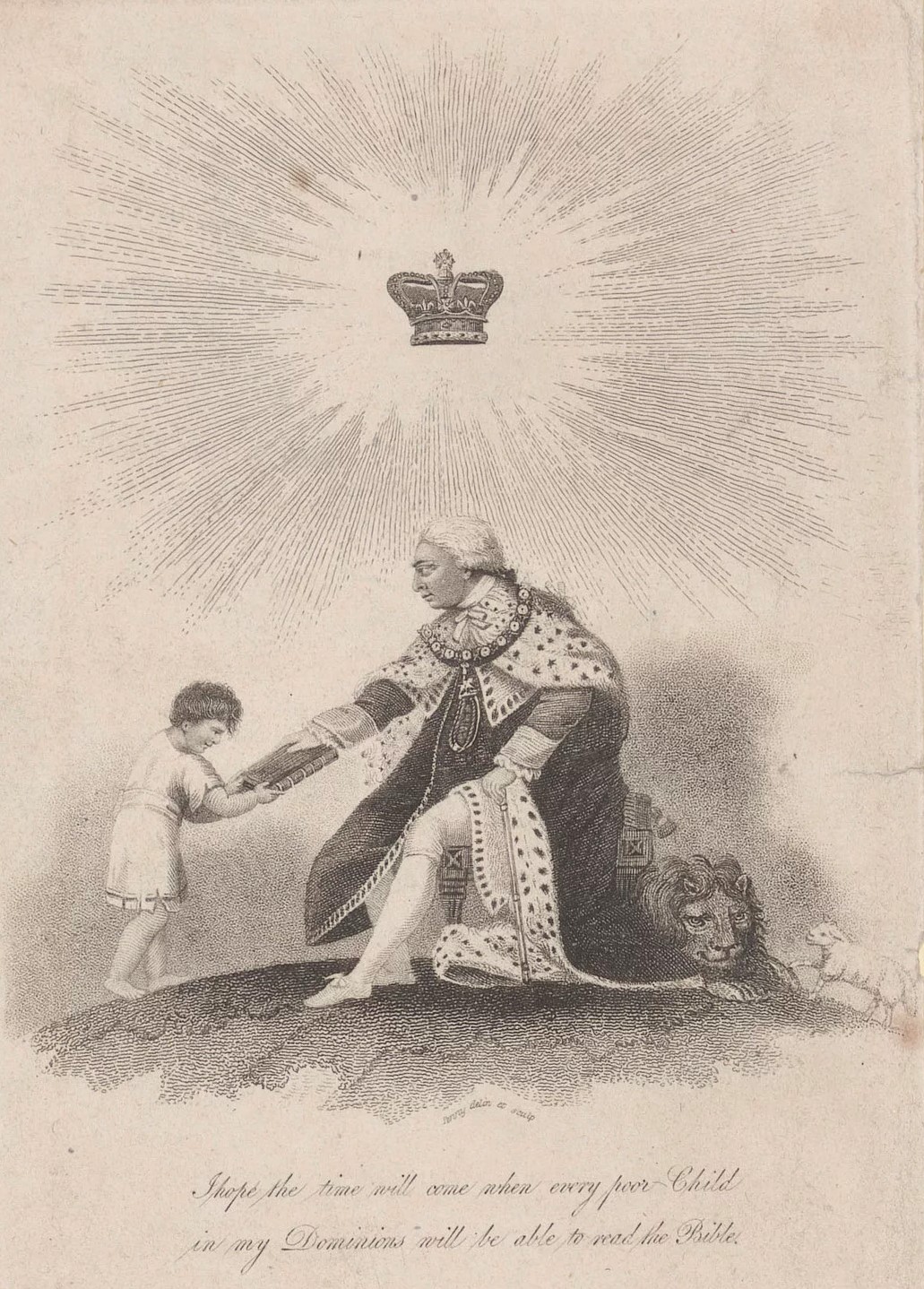
Professor Carté discusses the American war from the perspective of George III’s protestant empire. George III’s position as a Protestant king shaped the ecclesiastical policy of the empire, and also set the stage for the violent anti-Catholic riots that rocked Edinburgh and London during the war. Using sources from the Georgian Papers as well as other manuscript sources on both sides of the Atlantic, Carté traces the strengths and weaknesses of Britain’s pro-protestant politics in the Age of Revolution, and its consequences for the development of American religious freedom.
Video: The Georgian Papers Programme and Digital Humanities
March 13, 2019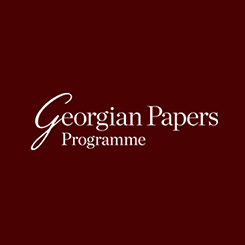
The GPP project team explores new ways of working and collaboration between archivists, academics in various humanities disciplines and digital humanists in order to maximise opportunities. In this talk, a historian, an archivist and a digital humanist from the project will jointly explore the challenges and opportunities the project presents.
Video: An Audience with the London Hamilton’s George III, Michael Jibson
September 26, 2018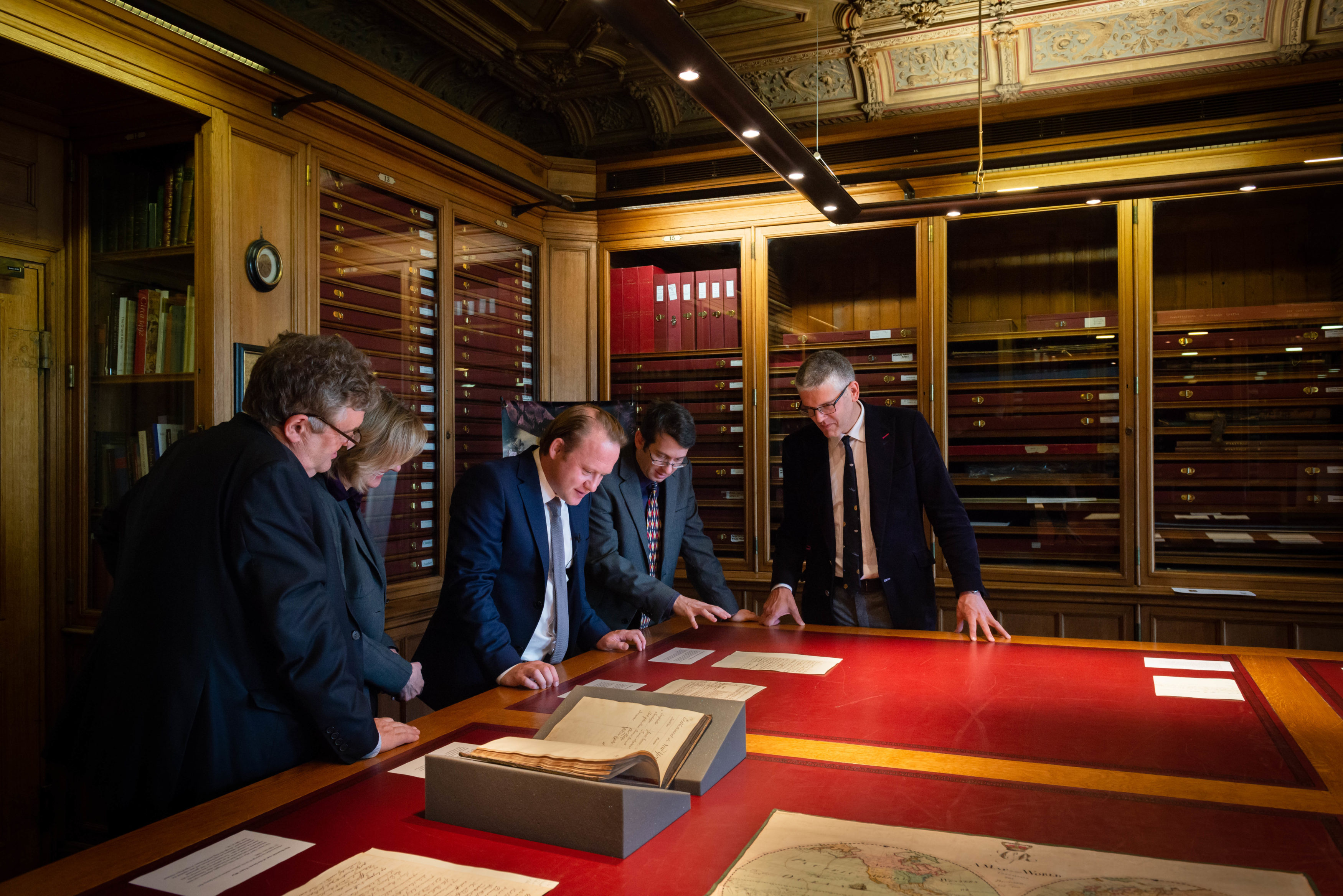
On 25 September 2018 Michael Jibson, the award-winning actor who portrays King George III in the London production of Hamilton, was invited to visit the Royal Library at Windsor Castle to see a selection of the remarkable collection of documents held by the Royal Archives that relate to King George III.
Audio: Spain and the American Revolution
March 26, 2018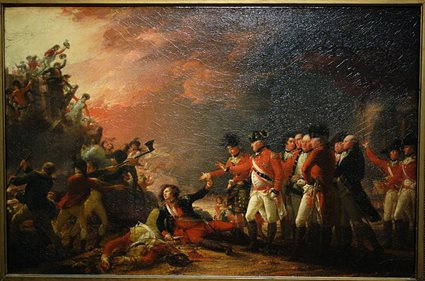
Professor Paquette lectures on Spain’s role in the American Revolution. He is especially interested in the Anglo-Spanish relationship, and the outbreak of war between these two countries in 1779. George III strenuously sought to prevent long-standing rivalry with Spain from leading to war and he sought in vain to end hostilities at various points. Using the Georgian Papers and other manuscript sources, Paquette traced the evolution of Spain’s relations with Britain during the American Revolution,
